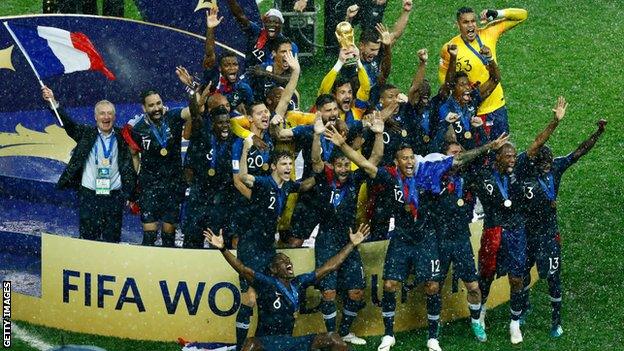Biennial World Cup: South American governing body Conmebol rejects Fifa plans
- Published

France won the last men's World Cup in Russia in 2018, with the next tournament taking place in Qatar in 2022
South American football's governing body Conmebol says its members will not play in a biennial World Cup.
World governing body Fifa has proposed to hold a World Cup every two years as part of a revamped football calendar.
But after a council meeting, Conmebol said "there are no reasons, benefits or justification" for the plans.
"The 10 countries that make up Conmebol confirm that they will not participate in a World Cup organised every two years," the statement added.
The World Cup has been held every four years since 1930, except during World War Two, and Conmebol's members include five-time winners Brazil and two-time winners Argentina.
Fifa will hold a summit in December with president Gianni Infantino still hoping to find consensus on the plans.
Caf, the African governing body, has given its backing, but European governing body Uefa and Europe's major leagues have declared their opposition.
A statement co-signed by Uefa and 10 of Europe's women's leagues said the plans would be "profoundly detrimental" to the women's game, and the International Olympic Committee believes they pose a threat to other sports and gender equality.
After Conmebol's meeting in Paraguay on Wednesday, it said the World Cup proposal "turns its back on almost 100 years of world football tradition, ignoring the history of one of the most important sporting events on the planet".
The current system, it added, "has proven to be a successful model" that "rewards effort, talent and planned work".
The Conmebol council also decided that Colombia will host the 2022 Copa America for women.